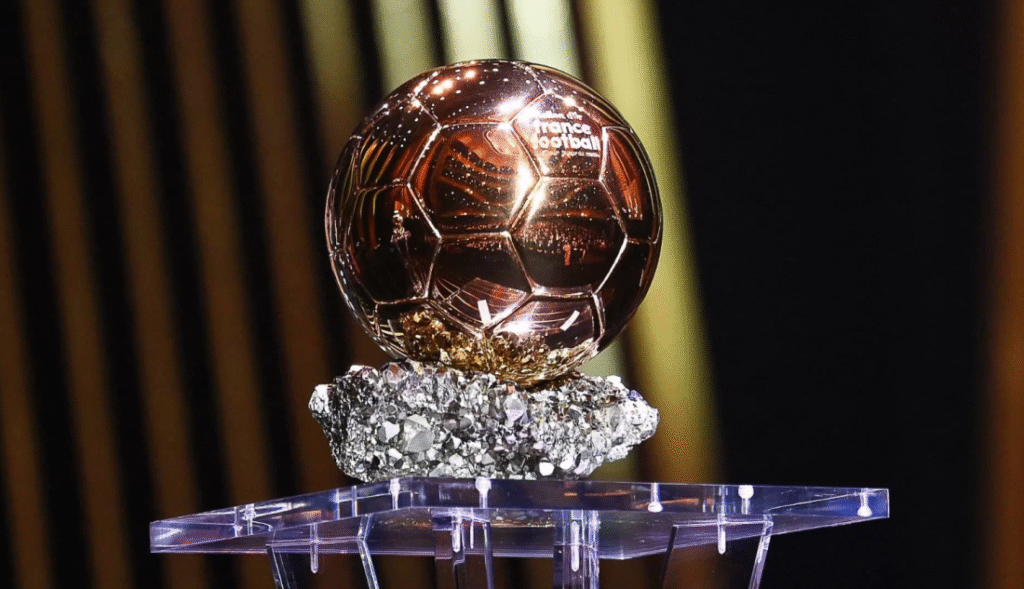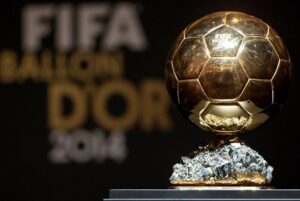
The Ballon d’Or: Football’s Ultimate Individual Honor

The Ballon d’Or stands as the most prestigious individual award in world football, a golden trophy that has come to symbolize excellence, achievement, and sporting immortality. Since its inception in 1956, this coveted prize has evolved from a European-focused honor to a truly global recognition of football’s finest talent.
A Legacy Forged in Excellence
Created by French football magazine France Football, the Ballon d’Or originally recognized the best European player performing in Europe. The award’s expansion over the decades reflects football’s growing international appeal and the sport’s ability to unite cultures through shared appreciation of extraordinary talent. In 1995, the criteria broadened to include all players in European leagues, and by 2007, it encompassed every professional footballer worldwide.
The trophy itself—a golden ball crafted by French jeweler Mellerio dits Meller—represents more than mere recognition. It embodies the dreams of countless young players who dare to imagine themselves among football’s elite. The intricate design, weighing approximately 7 kilograms and standing 31 centimeters tall, serves as a tangible symbol of sporting perfection.
Celebrating Individual Brilliance in a Team Sport
Critics often question whether individual awards belong in football, a fundamentally collective endeavor. However, the Ballon d’Or serves a crucial purpose in acknowledging that while football is indeed a team sport, certain players possess the rare ability to transcend ordinary performance and create moments of pure magic that can define seasons, tournaments, and careers.
The award celebrates players who don’t merely participate in the beautiful game—they elevate it. Whether through Pelé’s revolutionary artistry, Maradona’s inspired genius, Messi’s consistent excellence, or Ronaldo’s relentless pursuit of greatness, Ballon d’Or winners represent the pinnacle of what’s possible when talent, dedication, and opportunity converge.
A Democratic Process of Recognition
The voting process for the Ballon d’Or demonstrates football’s global nature. Journalists from around the world contribute their expertise, ensuring that recognition extends beyond European perspectives. This democratic approach means that a player’s impact is measured not just by statistics or trophies, but by their ability to capture the imagination of football observers across different cultures and continents.
The criteria consider multiple factors: individual performance, team success, fair play, and overall career achievements during the calendar year. This comprehensive evaluation ensures that winners have demonstrated excellence across various dimensions of the sport, from technical skill to leadership and sportsmanship.
Inspiring Future Generations
Perhaps the Ballon d’Or’s greatest value lies in its inspirational power. When young players watch the annual ceremony, they witness the celebration of dedication, perseverance, and sporting excellence. The award sends a powerful message: exceptional effort and talent will be recognized and celebrated on the world’s biggest stage.
The diversity of winners—from different countries, playing styles, and backgrounds—demonstrates that excellence can emerge from anywhere. This inclusivity has helped globalize football’s appeal and encouraged investment in youth development worldwide.
Beyond Individual Achievement
Ballon d’Or winners often become ambassadors for the sport, using their platform to promote positive values and social causes. The award elevates players beyond mere athletes to cultural figures who can influence society positively. Many recipients have leveraged their recognition to support charitable causes, promote education, or advocate for important social issues.
The award also drives commercial interest in football, attracting sponsors, broadcasters, and fans who want to witness history in the making. This economic impact supports the sport’s continued growth and development at all levels.
Legendary Winners and Dominant Teams
The Ballon d’Or’s history reads like a who’s who of football’s greatest legends. Lionel Messi leads the all-time winners list with eight awards (2009, 2010, 2011, 2012, 2015, 2019, 2021, 2023), showcasing unprecedented consistency at the highest level. Cristiano Ronaldo follows with five victories (2008, 2013, 2014, 2016, 2017), creating one of sport’s most compelling rivalries that elevated both players and the award’s global profile.
Other multiple winners include Michel Platini (1983, 1984, 1985), Johan Cruyff (1971, 1973, 1974), and Marco van Basten (1988, 1989, 1992), each representing different eras of football excellence. Single winners like Ronaldinho (2005), Kaká (2007), and Luka Modrić (2018) broke through during periods of Messi-Ronaldo dominance, proving that exceptional seasons can still be rewarded regardless of established hierarchies.
From a club perspective, Barcelona leads with 12 Ballon d’Or winners, largely due to Messi’s dominance during his time at the Catalan club, as well as contributions from Ronaldinho and other legends. Real Madrid follows closely with 12 winners, including Cristiano Ronaldo’s multiple awards and historic winners like Alfredo Di Stéfano and Luis Figo. AC Milan has produced 8 winners, reflecting their golden eras in the 1980s-1990s and 2000s, while Ajax Amsterdam’s 7 winners showcase their famous academy system and Total Football philosophy.
The diversity of winning clubs—from Bayern Munich and Juventus to Liverpool and Manchester United—demonstrates that excellence can emerge from various footballing cultures and playing philosophies, enriching the global game.
A Benchmark for Excellence
The Ballon d’Or provides an objective standard for measuring greatness across different eras. While comparing players from different generations will always involve subjective elements, the award creates a common framework for evaluation. It allows fans to engage in passionate debates about sporting excellence while maintaining respect for different perspectives and achievements.
The rigorous selection process ensures that winners have genuinely distinguished themselves during their award year. This credibility makes the Ballon d’Or a reliable indicator of who has reached the absolute peak of professional football performance.
Conclusion
The Ballon d’Or represents everything admirable about competitive sport: the pursuit of excellence, the celebration of talent, and the recognition that individual brilliance can inspire millions. While football remains fundamentally a team game, the award acknowledges that certain players possess extraordinary abilities that deserve special recognition.
Far from diminishing football’s collective nature, the Ballon d’Or enhances it by highlighting how individual excellence can elevate team performance and inspire sporting achievement at every level. In celebrating the world’s best player each year, we celebrate the beautiful game itself and the endless possibilities it offers to those willing to pursue greatness.
The golden ball will continue to symbolize football’s highest individual achievement, inspiring future generations to dream big, work hard, and strive for the excellence that defines true sporting legends.
















Post Comment